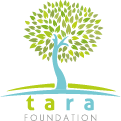The healthcare landscape in Bangladesh is complex and has many interrelated issues. In rural Bangladesh, access to proper healthcare is limited. Village doctors play a major role in the healthcare system as 70% of patients seek them out for curative services. Despite their lack of formal training, village doctors constitute 62% of the healthcare providers practicing modern medicine, and only 4% of the total health workforce is occupied by formally trained medical practitioners.
Immunization
Given limited medical access in Bangladesh's remote regions, families continue to drop out of immunization programs after a child's first set of vaccines. As such, children are left susceptible to a wide range of prevalent infectious diseases, which include: Tuberculosis, Hepatitis b, Hepatitis c, Malaria, and Leptospirosis. In addition to these diseases, avian influenza is a major threat to lives and livelihoods in Bangladesh. Despite low HIV prevalence rates, the country lacks major prevention efforts to keep this sustainable over the long-run.
Sanitation
Poor sanitation facilities and practices contribute to the spread of these diseases. Safe hygiene practices, especially proper hand-washing, remain a challenge in preventing the spread of disease. Since many parents fail to wash their hands before preparing food, and after defecating or cleaning their babies, children remain susceptible to the spread of these diseases. Only 53% of the country's population use improved sanitation facilities, where one in three people defecates in the open among the poorest families. As such, people are exposed to feces in their environment daily, which further contributes to the spread of disease. The water crisis is acute, with widespread bacterial contamination of surface water and arsenic contamination of groundwater. Poor water and sanitation facilities contribute to the spread of diarrhea and acute respiratory syndromes.
Nutrition
The health and sanitation environment affects malnutrition. The immune system falls and the disease processes exacerbate loss of nutrients, which worsens malnutrition. The diseases also contribute through the loss of appetite, lowered absorption of vitamins and nutrients, and loss of nutrients through diarrhea or vomiting. The World Bank estimates that Bangladesh is ranked 1st in the world for the number of children suffering from malnutrition.Two-thirds of the children, under the age of five, are under-nourished and about 60% of them are stunted. According to UNICEF, one neonate dies in Bangladesh every three to four minutes; 120,000 neonates die every year.
Given these issues, we are in the process of developing healthcare programs to combat such pressing concerns. We intend to develop awareness regarding diseases, encourage long-term involvement in immunization programs, provide nutrition and sanitation education, and establish water treatment facilities to ensure ground and surface water is arsenic free. In addition to these programs, we aspire to develop a network of doctors to provide pro bono medical treatment and need-based financial aid to the people of Bashati.
